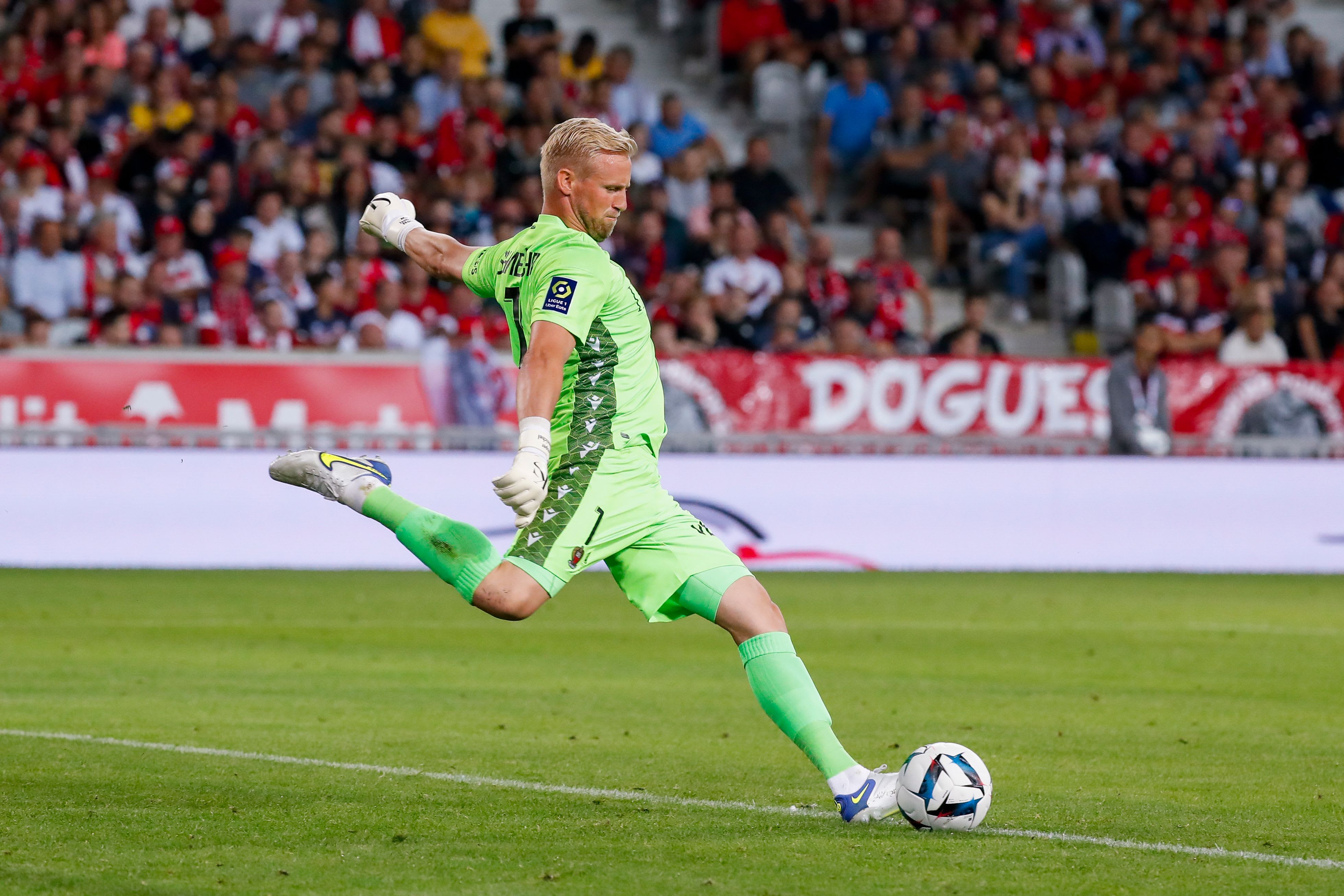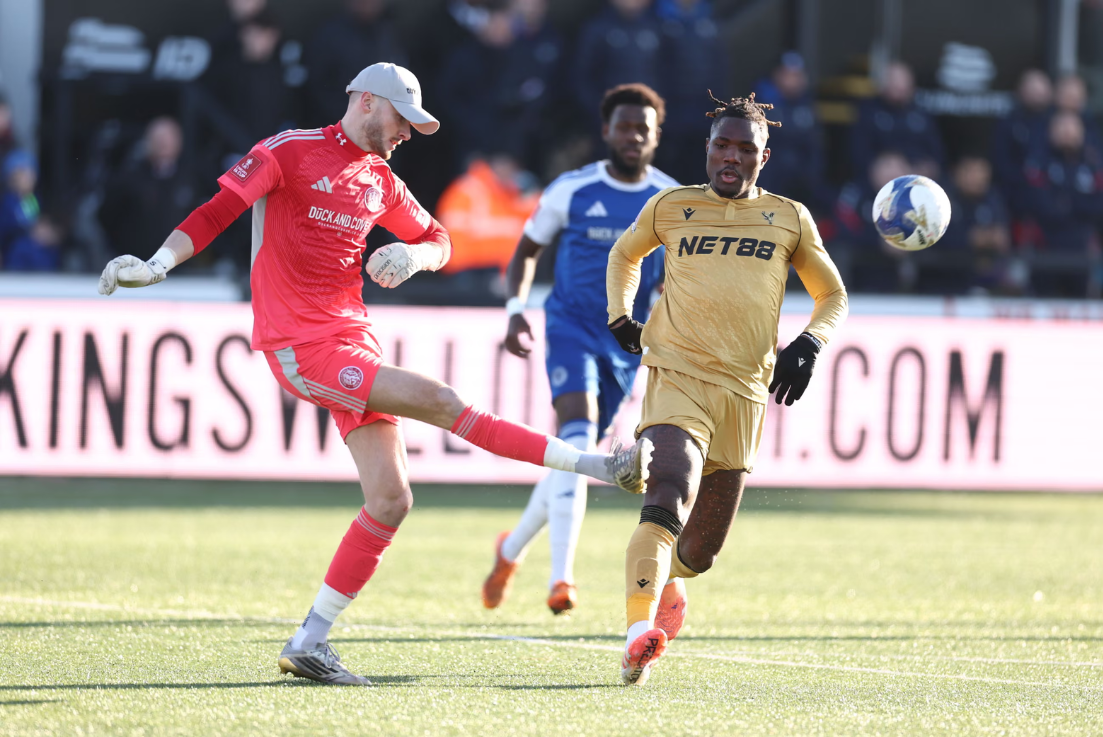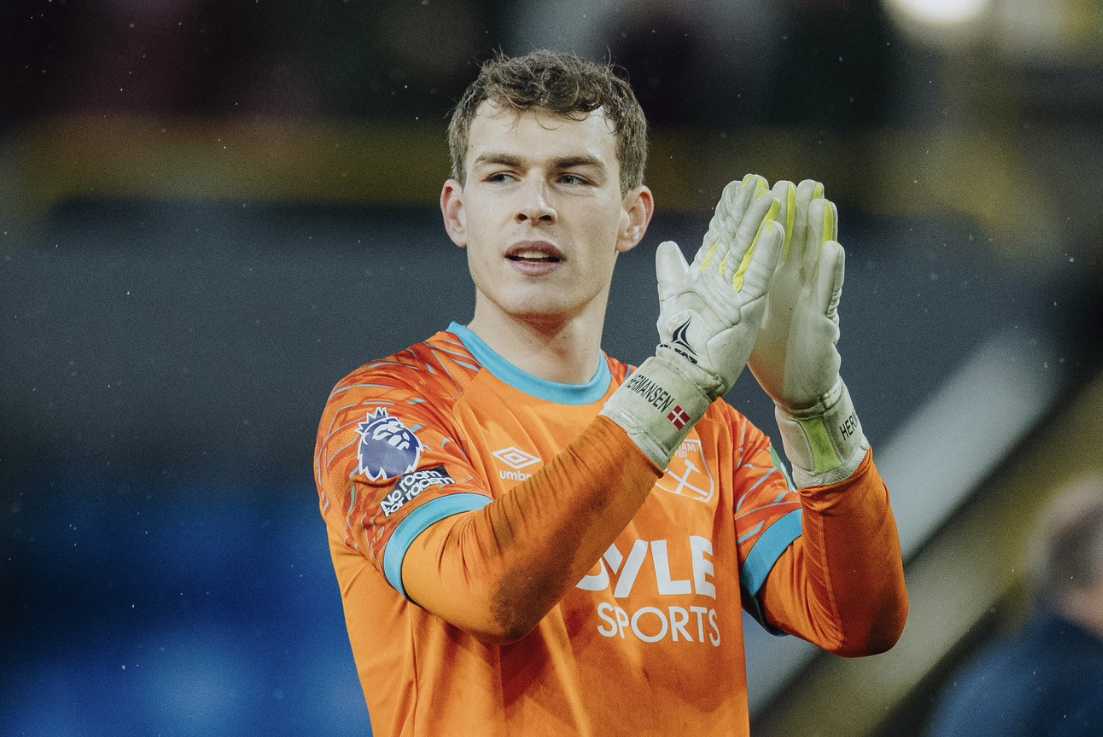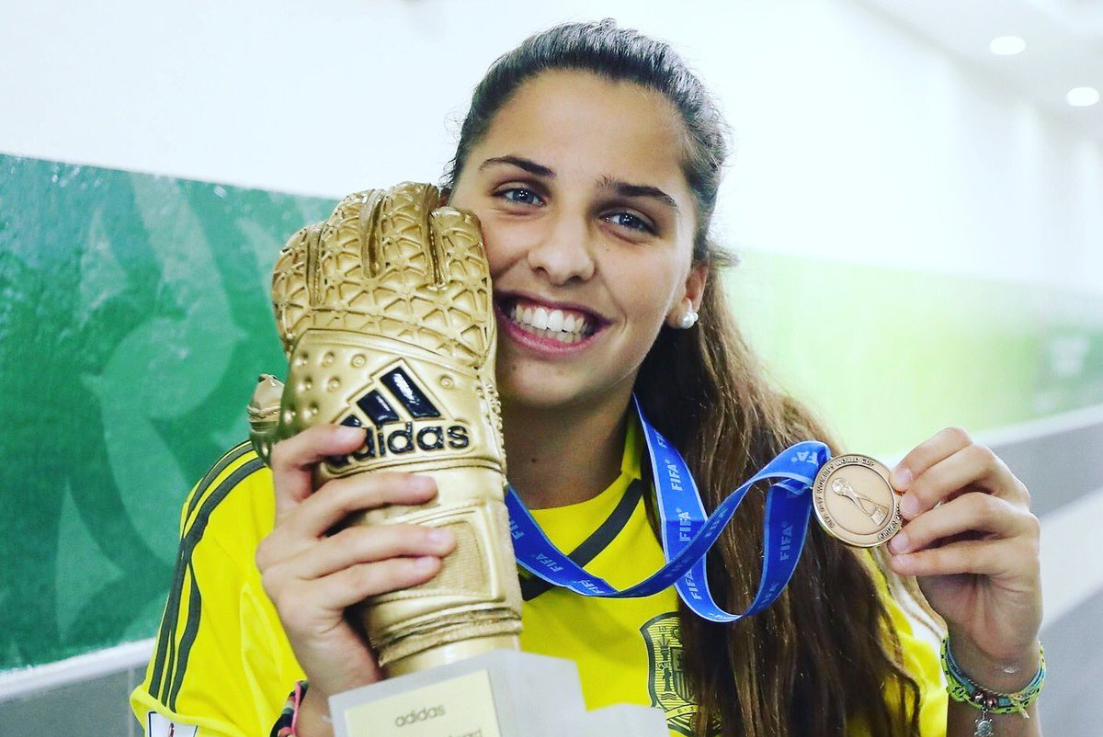Rangers Head of Academy Goalkeeping discusses the possible reasons behind an apparent decline in effective long ball distribution amongst youth goalkeepers.
In the last decade, professional football has become crazy about passing. Maybe that sounds odd; passing is an integral element of the game. But the Guardiola revolution, spearheading the introduction of pass-the-ball-into-the-net-style football, has encouraged a deep evolution in the modern game to focus heavily on possession-based football.
When a team has the players to do it, it looks beautiful. Possession football can be like a needle weaving its way through a tapestry of footballing fabric. But legitimate criticisms have also emerged when the style is pushed onto teams that aren’t suited to it.
The story is no different in the academy game. A hallmark of being a youth professional is the ability to be comfortable with the ball at your feet. Goalkeepers aren’t treated any differently, and this evolution has undoubtedly created much more technically able goalkeepers in possession across the academy game.
But as Rangers Head of Academy Goalkeeping Conor Brennan recognises, it can’t exist at the detriment of being able to do the basics right. Long distribution, when executed coherently, is extremely effective, and goalkeepers mustn't lose the art of long distribution from their hands.
The decline in young goalkeepers kicking the ball out of their hands is apparent to the 31 year old coach, who is currently undertaking his UEFA Pro Licence. “Over the last two or three years, I've seen kicking it out of the hands fall out of the game at all levels. One of the things I think coaches need to give young goalkeepers is the freedom to make their own decisions”, Brennan explained, speaking to Goalkeeper.com.
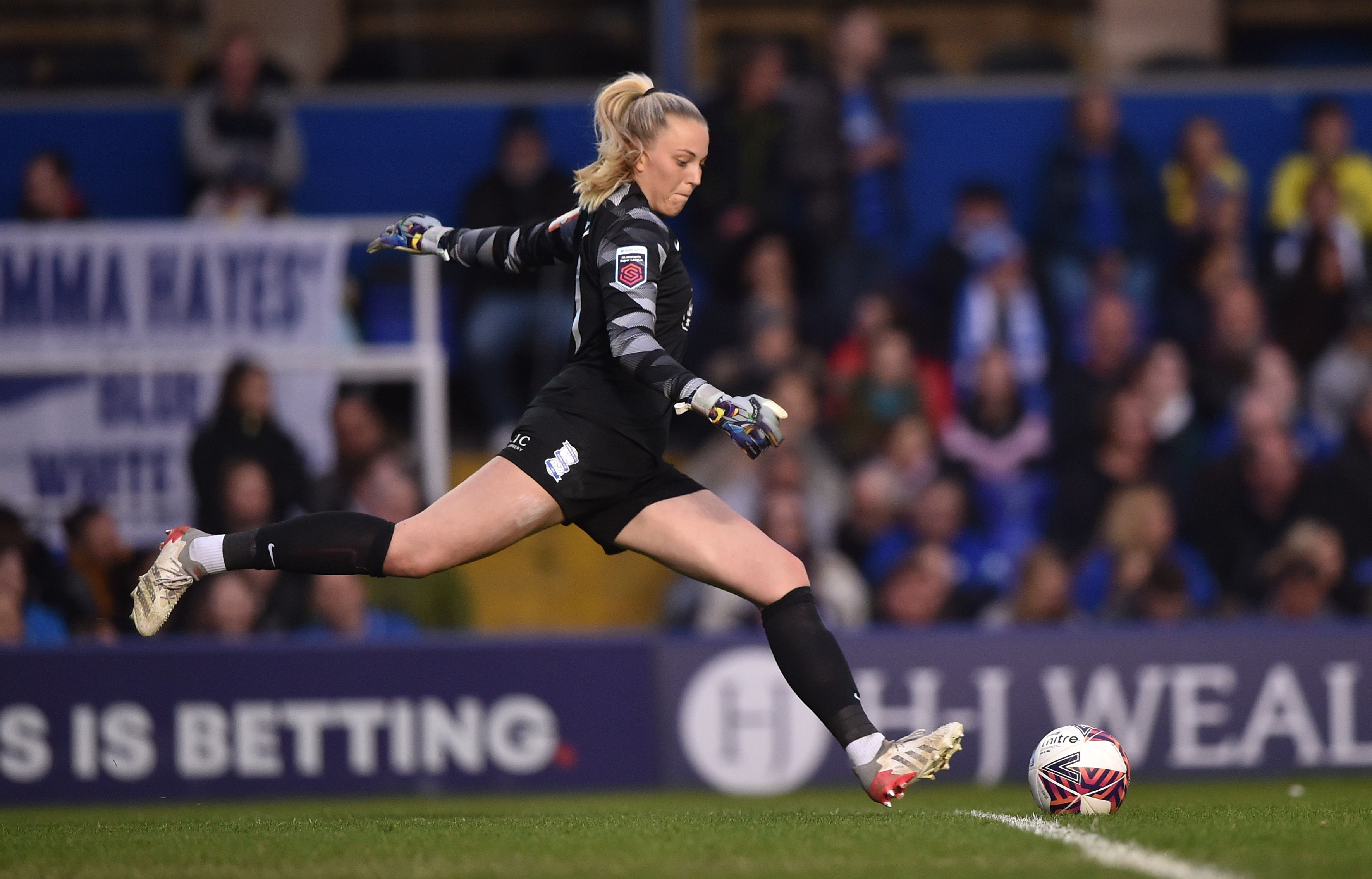
“When the ball goes back to the goalkeeper, I hear many coaches use the words ‘play, play, play’. So right away, we're taking that decision away from the goalkeeper of what to do, and he's just giving the ball to his closest teammate because there's an anxiety to get the ball moving as quickly as we can and start the game. For me, there may be better options.”
Brennan also believes that law innovations may encourage a shift. “The new eight-second rule in men’s football is also going to make goalkeepers kick more frequently from their hands”, he opined.
“If the opposition is standing close to the goalkeeper, then we are going to have to possibly play mid- distance or longer. But my worry is that whenever these kids go out on loan, they don't have that skill and attribute to be able to do that. Their muscles haven't really had a chance to develop that because they've not done it from 14 to 16 or 13 to 16, because in academies, we can struggle for space for goalkeepers to kick into due to more than one team training on a pitch, or this skill gets neglected.”
Brennan’s observations aren’t confined to the domestic sphere. Working as Northern Ireland U21’s goalkeeper coach, he has also observed a perceived decline in young goalkeepers kicking the ball out of their hands at the international level.
The Northern Irishman’s had a well-grounded goalkeeper education that has influenced his view of the game. Brennan’s playing career saw him start at Leicester City’s academy before featuring, full-time and part-time, for a range of clubs in Scotland and Northern Ireland, including Kilmarnock and Raith Rovers.
He was fortunate to play under a number of well-respected goalkeeper coaches during his career. In particular, Brennan spoke about the importance of Mike Stowell at Leicester and Billy Thompson at Kilmarnock, who shaped his coaching philosophy and how to manage young goalkeepers. He cites training with Kasper Schmeichel at Leicester as a particularly valuable developmental experience.
Brennan’s observations were also echoed by Temisan Williams, founder of The Coach Accelerator Community, who has coached for Arsenal, Tottenham Hotspur, and Fulham academies. Speaking to Goalkeeper.com, two areas Williams highlighted as potential areas of concern were contemporary academy goalkeepers’ ability to deal with aerial balls and long-range distribution. They’re undoubtedly able to do both in isolated contexts, but the reality of being crowded by four six foot-plus strikers on a cut up pitch with two thousand fans, close to the grass, dishing out abuse, is a different beast.
Brennan explained that “what I want to do is give people an understanding - not just goalkeeper coaches, but academy managers and team coaches - to create an environment to allow goalkeepers to kick from hands. How the game is moving forward, young goalkeepers are going to need to be able to use that skill.”
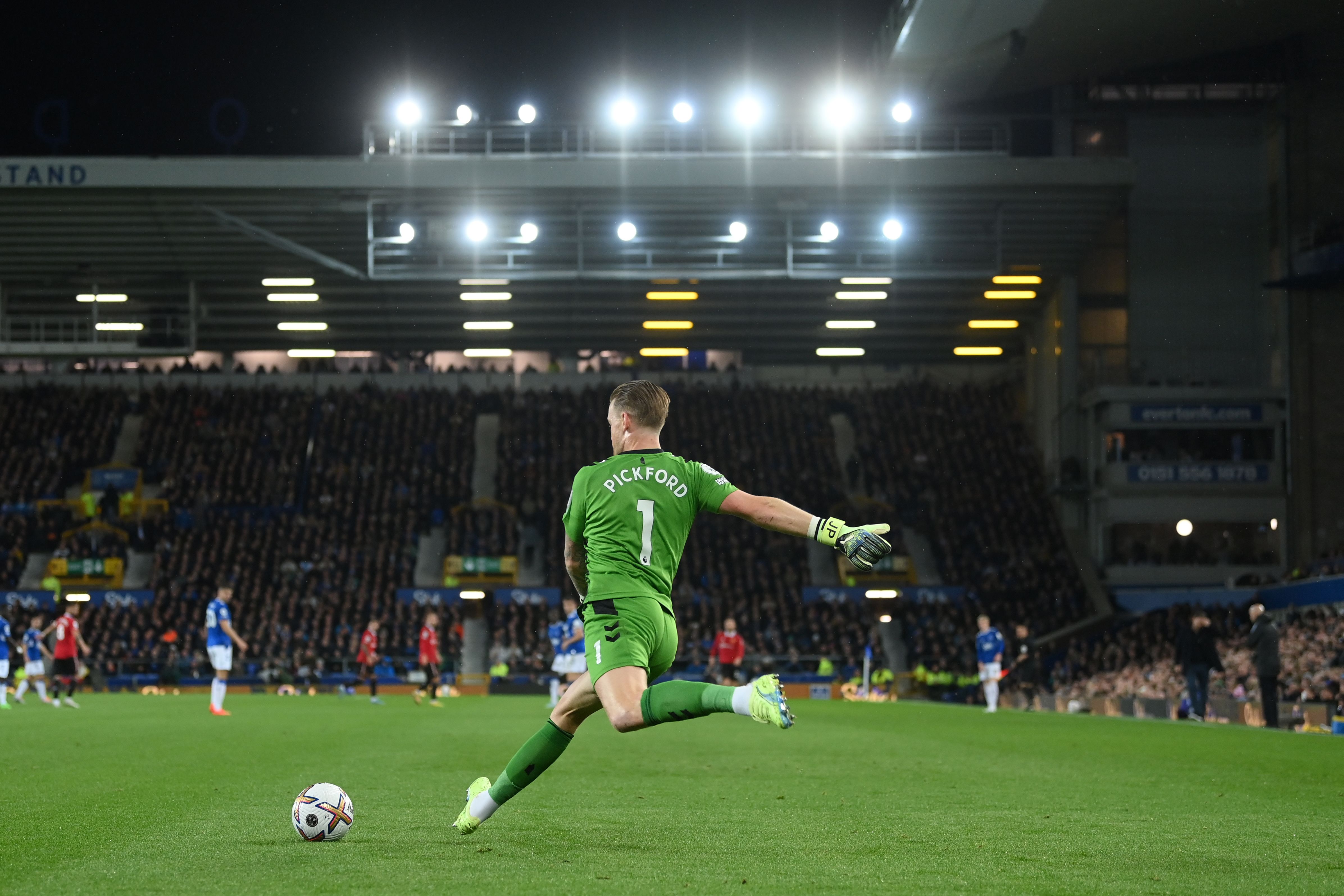
He also points to a wider shift in the game, especially in the Premier League, with elite teams playing longer, earlier in the build-up phase to beat the high presses increasingly used by the majority of clubs in the top-flight. A perfect example of this is Pep Guardiola’s shift in style at Manchester City by bringing in Italian goalkeeper Gianluigi Donnarumma, as a way to use talisman Erling Haaland more effectively and beat the opposition press.
“I think the Premier League is evolving, or it's going round in a full circle, where teams are now going longer,”, he explained. “I'm seeing that more and more often, if teams get pressed high, goalkeepers are used as an extra man, so why not just beat that press by playing longer? That’s where I'm coming from.
“It's certainly something that I'm seeing more and more of - the lack of young goalkeepers kicking from hands. That's not me saying that every action needs to be played into the final third of the pitch, but we need to develop the skills and the practice of doing it to allow it to happen when the time comes.”
With the availability of advanced technology, Brennan also believes that, now more than ever, coaching needs to take a joined-up approach between departments with a clear identity and willingness to embrace new trends in the game.
“Here at Rangers, we’re very complementary of how we work in terms of being modern and forward thinking. I think there are more live practices and unit-based work involving the goalkeeper and goalkeeper coach. Whether that's through the use of technology being more advanced, I think people are sharing a lot more on LinkedIn or YouTube, which is great because it gives people ideas.
“I’m open to new ideas, but one of the things that I would always ask is for coaches at other clubs to be open and look at the bigger picture in terms of how you play as a club, how you play as an academy, and how does that affect your goalkeeper so that there's a joined-up approach towards it.”
As this season intensifies, Brennan will be keen to build on his experience at both domestic and international level. His reasons for the decline in young goalkeepers kicking the ball out of their hands are thought-provoking and point towards a wider shift in the game, even at the elite level. Whether this trend continues in the years to come remains to be seen.
